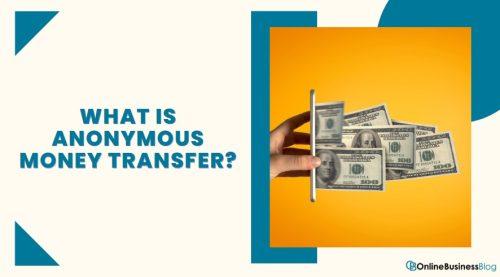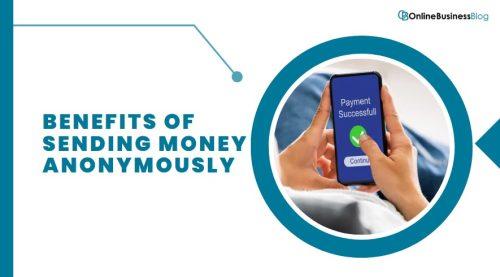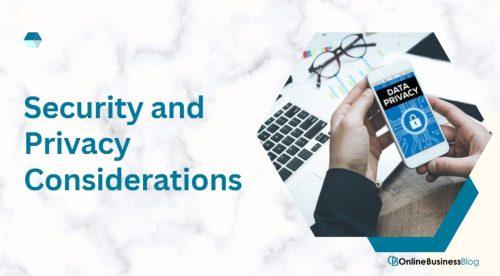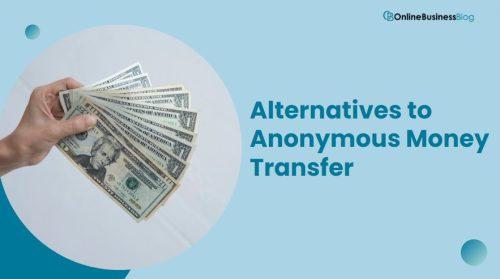Post Contents
Sending money is a common activity, whether it be for a gift, a business transaction, or something else. But what if you want to keep your identity hidden? In this article, we’ll look at the different ways you can send money anonymously and the pros and cons of each.
What is Anonymous Money Transfer?

When you want to send money anonymously, there are a few things you need to take into consideration. First, you need to find a way to send the money without revealing your identity. There are a few ways to do this, such as using a prepaid debit card or a service that allows you to send money without revealing your identity.
Once you have found a way to send the money, you need to consider how you will receive the money. If you are sending the money to someone who lives in another country, you may need to use a service that allows for international transfers. You will also need to consider how you want the recipient to receive the money. For example, you may want them to pick up the cash in person, or you may want them deposited directly into their bank account.
Finally, you need to think about how much money you want to send. When sending large amounts of cash, it is important to consider how it will be divided up amongst the recipients. You may also want to consider whether or not you want the recipient to know how much money they are receiving.
With all of these factors in mind, anonymous money transfers can be a great way to send money without revealing your identity.
Benefits of Sending Money Anonymously

When you need to send money to someone without revealing your identity, there are a few different ways to do it. You could use a prepaid debit card, which can be anonymous if you don’t register the card in your name. Or you could use a peer-to-peer payments app like Venmo or Cash App, which doesn’t require you to provide any personal information.
But what if you want to send cash? Unfortunately, it’s not as easy to do that anonymously. If you go to a bank or credit union and try to withdraw a large amount of cash, they may ask for your ID or report the transaction to the government. And if you mail cash, there’s no guarantee it will arrive safely (or at all).
That’s why many people turn to bitcoin when they need to send money anonymously. Bitcoin is a digital currency that can be used for peer-to-peer transactions without the need for a third party like a bank or payment processor. And because bitcoin transactions are pseudonymous (meaning they aren’t linked to your real identity), they offer a high degree of privacy.
Of course, there are downsides to using bitcoin. It can be volatile, and transaction fees can fluctuate depending on network activity. But if you need to send money anonymously, it’s one of the best options available.
How to Send Money Anonymously?

When sending money anonymously, there are a few things to keep in mind. First, it is important to use a service that does not require personal information from the sender or recipient. Second, it is important to use a service that allows for anonymous payment methods, such as prepaid cards or cryptocurrency. Finally, it is important to send the money through a secure channel, such as an encrypted email service.
There are a few different ways to send money anonymously. One option is to use a prepaid debit card. Prepaid debit cards can be purchased without providing any personal information. When using a prepaid debit card to send money, the sender does not need to provide their name, address, or bank account information. The recipient will also not be able to see the sender’s name or any other personal information. Another option for sending money anonymously is to use cryptocurrency.
Cryptocurrency can be sent through an anonymous online wallet without revealing any personal information. The recipient will only be able to see the cryptocurrency address of the sender and will not be able to identify them personally. Finally, another option for anonymizing money is to use an encrypted email service such as ProtonMail or Tutanota. These services allow users to create an account without providing any personal information and all communications are encrypted end-to-end meaning that only the sender and recipient can read them.
Security and Privacy Considerations

When sending money anonymously, there are a few things to consider in terms of security and privacy. First, you’ll want to make sure the recipient is someone you trust completely. If you’re unsure who they are, or if they might misuse the funds, it’s best not to send them anything.
Next, consider how you’ll send the money. There are a few different ways to do this, but some are more secure than others. For example, using a service like PayPal is generally reasonably secure, but it requires you to have an account with them. If you’re worried about someone being able to trace the money back to you, you may want to use a prepaid debit card instead. This can be anonymous as well, but there are some fees associated with it.
Finally, think about what you’ll say in the accompanying message. If you’re trying to keep your identity hidden, it’s important not to give away any clues in the text of the message itself. Be vague and general in your language, and avoid using any personal pronouns (I/me/we/us).
Different Ways of Sending Money Anonymously
Assuming you would like tips for sending money anonymously, there are a few ways to go about it. You could use a prepaid debit card, which can be bought with cash and doesn’t require you to input any personal information. Bitcoin is another option, as it’s a decentralized digital currency that can be sent without revealing your identity. Finally, you could use a service like Zelle or Venmo, which allows you to send money to others without sharing your bank account information. Whichever method you choose, just make sure to take the necessary precautions to ensure that your identity remains confidential.
Alternatives to Anonymous Money Transfer

There are a few alternatives to anonymous money transfers, depending on your needs. If you need to send a large amount of money, you may want to consider using a wire transfer service. Wire transfer services allow you to send money without revealing your identity. However, they typically require you to have an account with the service.
Another option is to use a prepaid debit card. Prepaid debit cards can be anonymously loaded with cash and used to make purchases or withdraw cash from ATMs. However, there are limits on how much you can load onto the card and some cards may charge fees.
Finally, you could use a peer-to-peer payment service such as PayPal or Venmo. These services allow you to send money to others without revealing your identity. However, the recipient will need to have an account with the same service in order to receive the funds.
Conclusion
Sending money anonymously can be a great way to help someone out without revealing your identity or having them know who you are. With the right technology and tools, you’ll be able to send funds safely and securely with minimal risk of being traced back to you. It’s essential to do your research before making any transactions so that you can ensure that all of your anonymous transfers go as smoothly as possible. If done correctly, sending money anonymously is a fantastic way to show someone support while keeping yourself safe and secure.


